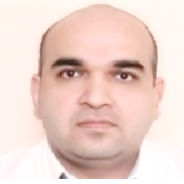Voice Disorders: Causes, Symptoms, and Treatment
Learn about voice disorders, their causes, symptoms, diagnosis, and treatment options. Discover prevention tips and ways to maintain vocal health for better communication.

Written by Dr.Sonia Bhatt
Last updated on 3rd Jul, 2025

Introduction
Your voice plays a crucial role in communication, allowing you to express emotions and connect with others. However, when voice disorders develop, they can affect the pitch, volume, or quality of your voice. These disorders can occur due to problems in your vocal cords, larynx, or surrounding structures. Some voice disorders cause hoarseness or breathiness, while others may lead to complete voice loss or difficulty controlling vocal tone.
Voice disorders can affect people of all ages and can result from medical conditions, vocal strain, or lifestyle factors. Maintaining good vocal health is essential for clear speech and overall well-being. Understanding the causes and symptoms of voice disorders can help you take the right steps to prevent or manage them effectively.
Types of Voice Disorders
If you struggle with persistent hoarseness, voice fatigue, or difficulty speaking, you may have a voice disorder. Understanding the different types of voice disorders can help you recognise the symptoms and seek the right treatment.
Functional Voice Disorders: These disorders occur when your vocal cords are not used properly, even though they are physically healthy. If you frequently strain your voice by shouting or speaking loudly for long periods, you may develop muscle tension dysphonia or psychogenic voice disorders. Without proper vocal care, these issues can worsen, affecting your ability to communicate clearly.
Organic Voice Disorders: Organic voice disorders happen when there are structural changes in your vocal cords or larynx. Conditions such as nodules, polyps, or inflammation from acid reflux can make your voice sound raspy or weak. If you experience ongoing voice changes, it’s important to see a specialist who can identify the cause and recommend appropriate treatment.
Neurological Voice Disorders: Some voice disorders are caused by nerve-related issues that affect the muscles controlling your vocal cords. If you have Parkinson’s disease, vocal cord paralysis, or spasmodic dysphonia, you may experience difficulty controlling your voice, leading to tremors, weakness, or involuntary spasms while speaking. Therapy and medical treatments can help improve vocal function in such cases.
Common Causes of Voice Disorders
Your voice can be affected by various factors, from everyday habits to medical conditions. Knowing what causes voice disorders can help you take better care of your vocal health.
Voice Misuse and Overuse: If you frequently raise your voice, talk for long hours without breaks, or use improper breathing techniques, your vocal cords may become strained. Teachers, singers, and public speakers are at higher risk of developing voice problems. To prevent damage, you should practise proper voice projection and allow time for vocal rest.
Medical Conditions Affecting Voice: Certain illnesses and conditions can impact your voice quality. Respiratory infections, acid reflux, allergies, and thyroid disorders can cause hoarseness or vocal weakness. If you have ongoing voice issues that don’t improve, it’s important to check for underlying health conditions that may be affecting your voice.
Psychological Factors: Your emotional well-being can also influence your voice. Anxiety, stress, and trauma may lead to psychogenic voice disorders, where your voice sounds weak, strained, or even disappears temporarily. If you experience voice changes during stressful situations, relaxation techniques and therapy may help restore your vocal function.
Symptoms and Signs
Recognising the symptoms of a voice disorder early can help you seek treatment before the condition worsens. If you notice persistent changes in your voice, it’s essential to address them promptly.
Hoarseness and Voice Fatigue: If your voice sounds rough, breathy, or weak, you may be experiencing hoarseness. Voice fatigue occurs when your voice tires quickly after speaking for a short period. Resting your voice and staying hydrated can help, but if the symptoms persist for more than two weeks, you should consult a doctor.
Loss of Vocal Range: You may find it difficult to reach certain notes when singing or struggle to modulate your tone while speaking. A reduced vocal range can indicate strain, vocal cord swelling, or an underlying condition affecting your vocal cords. Voice therapy may help restore flexibility and improve control over your voice.
Pain or Discomfort During Speaking: If you experience pain, tightness, or discomfort when speaking, it could be a sign of inflammation or tension in your vocal cords. Speaking should not cause pain, so if discomfort persists, you should seek medical advice to determine the underlying cause and explore treatment options.
Consult Top Specialists for Your Symptoms
Diagnosis of Voice Disorders
If you are experiencing persistent hoarseness, vocal fatigue, or difficulty speaking, it is important to seek a proper diagnosis. Voice disorders can have various underlying causes, so an accurate evaluation helps determine the best course of treatment. Specialists use different diagnostic techniques to assess vocal cord function and identify potential abnormalities.
1. Laryngoscopy and Stroboscopy
These tests help detect nodules, polyps, or structural issues affecting your voice.
Laryngoscopy allows doctors to examine your vocal cords and throat using a small, flexible camera inserted through the nose or mouth.
Stroboscopy is a specialised technique that uses a flashing light to capture slow-motion images of your vocal cords while you speak.
2. Voice Evaluation by a Speech-Language Pathologist
A speech-language pathologist (SLP) assesses how your voice sounds, your breathing patterns, and any difficulties you may have in vocal projection. The evaluation may include listening to how your voice functions during different speech tasks and identifying patterns of strain, breathiness, or weakness. Based on the results, they recommend targeted therapy to improve voice quality.
3. Acoustic Analysis
Acoustic analysis measures different aspects of your voice, including pitch, loudness, and clarity. This computer-based assessment helps identify vocal irregularities that may not be visible through physical examinations. By analysing voice frequency and stability, doctors can track changes over time and determine whether treatment is improving your vocal function.
Treatment Options
Voice disorders can often be managed with the right treatment plan. Whether caused by misuse, medical conditions, or structural issues, treatment options focus on improving vocal health and restoring normal function.
1. Voice Therapy
Voice therapy helps retrain your vocal cords and correct improper speech habits.
Speech-language pathologists guide you through vocal exercises to improve strength and flexibility.
Breathing techniques help you support your voice without straining.
Adjusting speaking volume and pitch reduces unnecessary stress on the vocal cords.
Voice therapy is particularly effective for conditions like muscle tension dysphonia and functional voice disorders.
2. Medical Treatment
Certain voice disorders require medication to reduce inflammation or manage underlying conditions.
Corticosteroids may help with swelling in the vocal cords.
Acid reflux medications prevent stomach acid from irritating the throat.
Neurological medications are used for conditions like spasmodic dysphonia.
A doctor determines the right medication based on your specific condition and symptoms.
3. Surgical Interventions
If voice disorders are caused by structural abnormalities, surgery may be necessary.
Microsurgery removes nodules, polyps, or cysts from the vocal cords.
Laser surgery is used to treat lesions or excessive tissue growth.
Vocal cord injections help improve muscle control for conditions like vocal cord paralysis.
Surgery is considered only when non-invasive treatments do not provide sufficient improvement.
Prevention Strategies
Taking care of your voice can help prevent strain and long-term damage. Simple lifestyle adjustments and vocal care techniques reduce the risk of developing voice disorders.
1. Proper Vocal Techniques
Speaking or singing incorrectly can put unnecessary stress on your vocal cords. Practising proper vocal techniques can help maintain voice health.
Avoid shouting or speaking too loudly for extended periods.
Use diaphragmatic breathing to support your voice without strain.
Warm up your voice before extensive use, especially for singers or public speakers.
2. Hydration and Rest
Keeping your vocal cords hydrated and allowing them to rest is essential for maintaining a healthy voice.
Drink plenty of water throughout the day to prevent dryness.
Limit caffeine intake, as it can dehydrate your throat.
Take breaks between speaking engagements or singing sessions to avoid fatigue.
3. Avoiding Smoking and Alcohol
Certain lifestyle habits can severely impact your vocal health.
Smoking irritates the vocal cords and increases the risk of polyps or cancer.
Alcohol dehydrates the throat and makes the vocal cords more vulnerable to strain.
Exposure to second-hand smoke or polluted air can also contribute to voice issues.
By following these prevention strategies, you can protect your voice and reduce the chances of developing voice-related problems.
Long-term Management and Complications
Voice disorders can significantly impact your quality of life, making it difficult to communicate clearly. Long-term management focuses on maintaining vocal health and preventing further complications. Addressing voice problems early can help you avoid chronic issues that may interfere with daily activities.
1. Maintaining Vocal Health
Taking care of your voice requires consistent effort.
If you use your voice frequently, practising vocal hygiene can prevent strain and long-term damage.
Staying hydrated, avoiding excessive throat clearing, and using proper breathing techniques help keep your vocal cords healthy.
Voice therapy can be beneficial in learning how to project your voice without overexerting it.
Regular check-ups with a specialist ensure that any voice issues are managed before they worsen.
2. Potential Complications if Left Untreated
Ignoring persistent voice problems can lead to long-term damage.
Strained vocal cords may develop nodules or polyps, making it harder to speak.
Chronic hoarseness can indicate an underlying issue such as acid reflux or neurological conditions.
In severe cases, untreated voice disorders may result in permanent voice changes, requiring surgery or ongoing therapy.
Seeking treatment at the first sign of vocal strain helps prevent serious complications.
Voice Disorders in Special Populations
Some people are at a higher risk of developing voice disorders due to the demands of their profession or unique vocal challenges. Identifying these risks helps in preventing long-term vocal damage.
1. Voice Disorders in Singers and Performers
Professional voice users such as singers, actors, and public speakers rely on their voices daily. Repeated strain can lead to vocal fatigue, nodules, or even vocal cord haemorrhages. To prevent these issues:
Warm up your voice before performances.
Avoid shouting or excessive vocal strain.
Stay hydrated to keep the vocal cords lubricated.
Take vocal rest after prolonged use.
2. Voice Disorders in Children
Children may develop voice disorders due to excessive shouting, incorrect speech habits, or underlying medical conditions. Common issues include vocal nodules and hoarseness caused by misuse. If your child frequently loses their voice or struggles with vocal strain, consulting a speech-language therapist can help. Encouraging good vocal habits at an early age prevents long-term voice problems.
Conclusion
Voice disorders can affect your ability to communicate, leading to frustration and difficulty in daily interactions. Recognising the early signs of a voice disorder and seeking medical advice ensures timely treatment. Whether caused by vocal strain, medical conditions, or neurological factors, early intervention can prevent complications and improve voice function.
Maintaining vocal health should be a priority, especially if you use your voice frequently. Simple practices such as staying hydrated, resting your voice, and using proper speaking techniques help prevent damage. Raising awareness about voice disorders encourages early diagnosis and treatment, ensuring that individuals with vocal issues receive the support they need. Prioritising vocal care can help you maintain a strong, healthy voice for years to come.
Consult Top Speech Therapists
Consult Top Specialists for Your Symptoms

Abhijeet
Speech Pathologist and Audiologist
8 Years • DHLS, Audiologist and Speech Language pathologist
Pune
Apollo Clinic, Nigdi, Pune

Mr. Somenath Mukherjee. Top Speech Therapist
Speech Therapist
17 Years • B.A.S.R (Cal), M.A.S.L.P (Cal), Specially Trained in Dysphagia Management
Kolkata
Apollo Multispeciality Hospitals , Kolkata, Kolkata
(25+ Patients)

Dr. Karan
Speech Therapist
5 Years • Diploma in hearing, language and speech
Gurugram
APOLLO SUGAR CLINICS GURUGRAM, Gurugram

Mr. Himanshu Khanna
Speech Therapist
27 Years • M.Sc. Speech & Hearing
Delhi
Apollo Hospitals Indraprastha, Delhi

Ms. Ayushi Singh
Speech Therapist
2 Years • BASLP, Msc (Speech Language pathology )
Indore
Apollo Hospitals Vijay Nagar, Indore
Consult Top Speech Therapists

Abhijeet
Speech Pathologist and Audiologist
8 Years • DHLS, Audiologist and Speech Language pathologist
Pune
Apollo Clinic, Nigdi, Pune

Mr. Somenath Mukherjee. Top Speech Therapist
Speech Therapist
17 Years • B.A.S.R (Cal), M.A.S.L.P (Cal), Specially Trained in Dysphagia Management
Kolkata
Apollo Multispeciality Hospitals , Kolkata, Kolkata
(25+ Patients)

Dr. Karan
Speech Therapist
5 Years • Diploma in hearing, language and speech
Gurugram
APOLLO SUGAR CLINICS GURUGRAM, Gurugram

Mr. Himanshu Khanna
Speech Therapist
27 Years • M.Sc. Speech & Hearing
Delhi
Apollo Hospitals Indraprastha, Delhi

Ms. Ayushi Singh
Speech Therapist
2 Years • BASLP, Msc (Speech Language pathology )
Indore
Apollo Hospitals Vijay Nagar, Indore